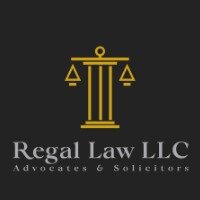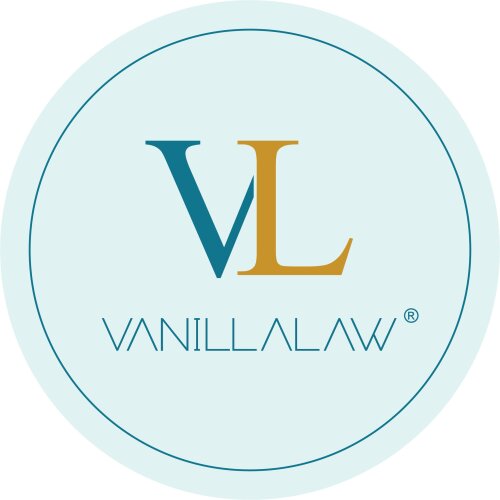Best Nonprofit & Charitable Organizations Lawyers in Singapore
Share your needs with us, get contacted by law firms.
Free. Takes 2 min.
Or refine your search by selecting a city:
List of the best lawyers in Singapore
About Nonprofit & Charitable Organizations Law in Singapore
Nonprofit and charitable organizations in Singapore play a crucial role in addressing societal needs and enhancing community welfare. These organizations operate under a framework of laws aimed at ensuring accountability, transparency, and effective governance. Such entities can take various forms, including Voluntary Welfare Organizations (VWOs), charities, and institutes of public character (IPCs). The regulation and oversight are primarily conducted by the Commissioner of Charities under the Charities Act, which ensures that organizations adhere to standards that prevent misuse of funds and resources intended for public benefit.
Why You May Need a Lawyer
Seeking legal help is often necessary for nonprofit and charitable organizations to ensure compliance with the law, avoid potential pitfalls, and effectively achieve their mission. Common situations where legal advice might be required include:
- Establishing a nonprofit organization, including drafting constitutions and registering with appropriate authorities.
- Ensuring compliance with the Charities Act and other relevant regulations, such as licensing requirements.
- Handling taxation issues, including obtaining tax exemptions and managing donations.
- Navigating governance issues, including managing disputes among board members or stakeholders.
- Drafting and reviewing contracts and agreements related to fundraising, employment, and operations.
Local Laws Overview
The regulatory framework for nonprofit and charitable organizations in Singapore consists of several key legal instruments and regulatory bodies:
- The Charities Act: This act governs the operation of charities, providing guidelines on registration, governance, and financial management. It also mandates annual reporting to ensure transparency.
- The Societies Act: Nonprofits that are structured as societies must comply with provisions under this act, including registration with the Registry of Societies.
- The Companies Act: Some nonprofits may be structured as companies limited by guarantee. These organizations must adhere to the Companies Act and are required to register with the Accounting and Corporate Regulatory Authority (ACRA).
Frequently Asked Questions
What is the process of registering a charity in Singapore?
To register a charity, you need to submit an application to the Commissioner of Charities through the Charities Portal, including details about the charity’s purpose, activities, and governance structure.
Are all nonprofits automatically charities?
No, not all nonprofits are charities. A charity is a specific type of nonprofit organization that is registered with the Commissioner of Charities to provide public benefit and typically enjoys tax advantages.
What are the benefits of being an Institute of Public Character (IPC)?
IPCs can issue tax-deductible receipts to donors, which can enhance fundraising efforts by providing tax incentives to donors.
How can a nonprofit lose its charitable status?
A nonprofit can lose its charitable status if it fails to comply with the legal requirements set by the Commissioner of Charities, such as improper use of funds or lack of transparency in operations.
What is an AGM, and is it mandatory for nonprofits?
An Annual General Meeting (AGM) is a yearly gathering of an organization's interested shareholders or members. It's usually mandatory and serves as a platform to report on annual activities, financial health, and future plans.
Can a charity engage in political activities?
No, charities in Singapore are prohibited from participating in political campaigning or activities that deviate from their charitable purposes.
What are the reporting requirements for charities?
Charities are required to submit an Annual Report and audited financial statements to the Commissioner of Charities, detailing their activities and financial health.
How can volunteers protect themselves legally?
Volunteers should ensure they understand their roles and responsibilities and may also seek to have liability waivers or indemnity agreements in place to protect against any legal liabilities.
How are conflicts of interest managed in a nonprofit?
Nonprofits are required to have a conflict of interest policy in place, which involves declaration of any potential conflicts by board members or staff and the strategy for addressing them.
Do nonprofits pay taxes?
While nonprofits may be eligible for certain tax exemptions, they may still be liable for taxes on income or profits from non-charitable activities.
Additional Resources
For further guidance and resources related to nonprofit and charitable organizations in Singapore, consider consulting the following:
- Ministry of Culture, Community and Youth (MCCY): Responsible for overseeing the charitable sector.
- Commissioner of Charities: Provides comprehensive guidelines and regulatory requirements for charities.
- Charities Portal: An online resource for registration and compliance matters related to charities.
- Association of Nonprofits in Singapore (AON): Offers support and advocacy for nonprofit organizations.
Next Steps
If you require legal assistance, consider the following steps:
- Identify specific legal needs and dimensions of your nonprofit organization that require attention.
- Consult a lawyer with expertise in nonprofit and charitable organization law in Singapore.
- Prepare and organize all necessary documentation pertaining to your organization to facilitate efficient legal consultation.
- Consider attending seminars or workshops on nonprofit management and legal compliance to stay informed on best practices and legal obligations.
Lawzana helps you find the best lawyers and law firms in Singapore through a curated and pre-screened list of qualified legal professionals. Our platform offers rankings and detailed profiles of attorneys and law firms, allowing you to compare based on practice areas, including Nonprofit & Charitable Organizations, experience, and client feedback.
Each profile includes a description of the firm's areas of practice, client reviews, team members and partners, year of establishment, spoken languages, office locations, contact information, social media presence, and any published articles or resources. Most firms on our platform speak English and are experienced in both local and international legal matters.
Get a quote from top-rated law firms in Singapore — quickly, securely, and without unnecessary hassle.
Disclaimer:
The information provided on this page is for general informational purposes only and does not constitute legal advice. While we strive to ensure the accuracy and relevance of the content, legal information may change over time, and interpretations of the law can vary. You should always consult with a qualified legal professional for advice specific to your situation.
We disclaim all liability for actions taken or not taken based on the content of this page. If you believe any information is incorrect or outdated, please contact us, and we will review and update it where appropriate.
Browse nonprofit & charitable organizations law firms by city in Singapore
Refine your search by selecting a city.















